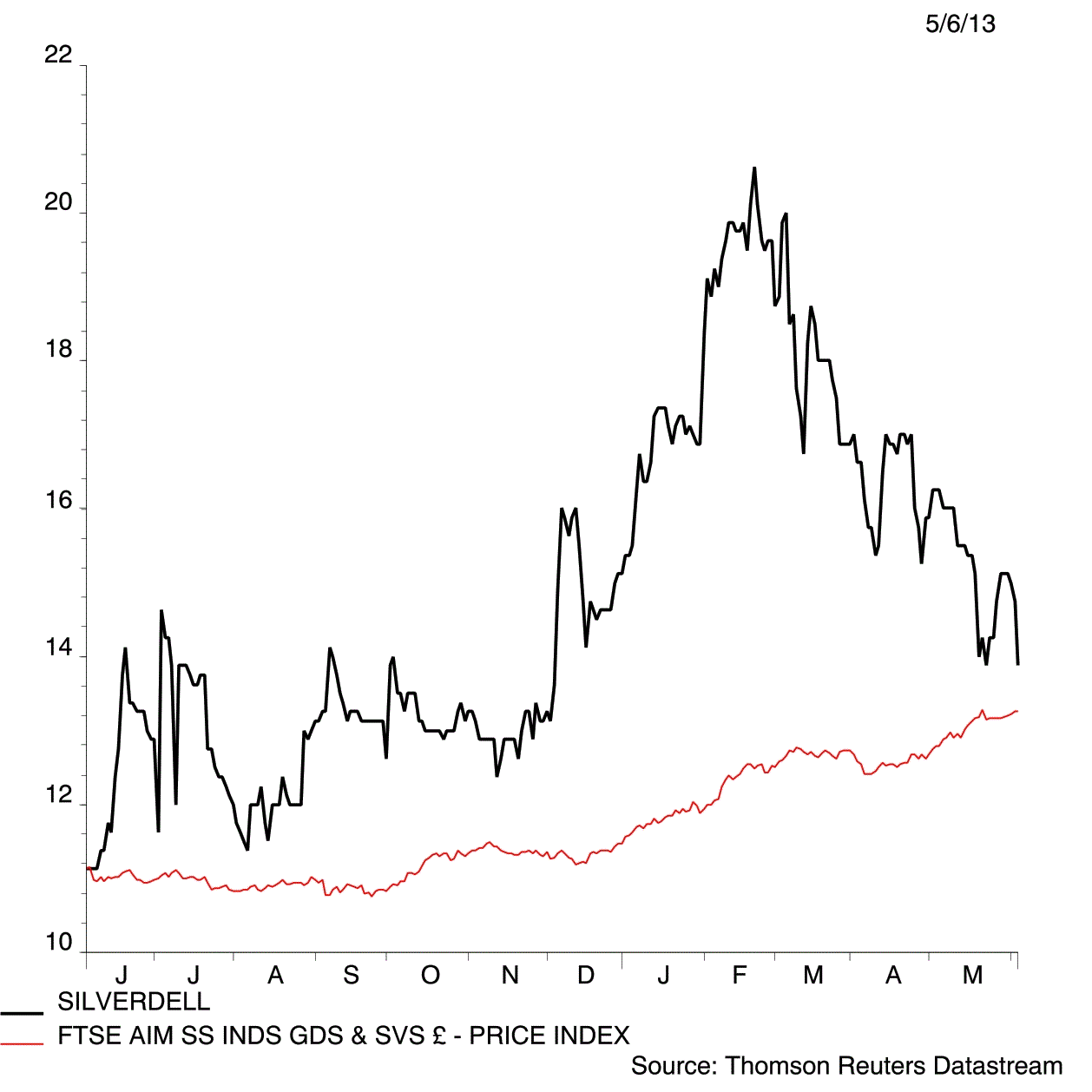Half-year results from industrial services group Silverdell (SID:AIM) hit analyst forecasts, yet the shares have dropped 5.9% to 13.88p. At first glance, investors may have been spooked by a major contract deferral and lower-margin work in the remediation arm. Yet we believe the main problem lies with Silverdell's failure, once again, to properly communicate its working capital needs to support ambitious growth goals.
Shares met chief executive officer (CEO) Sean Nutley a few months ago where he explained the group's targets. He reckons Silverdell can achieve 15% year-on-year revenue growth. Analysts only expect 8%.
We wrote the interview up as a 'Griller' article (Shares, 25 Apr) where Nutley said that Silverdell wouldn't need any extra working capital to achieve the analysts' 8% growth target. Yet he did state that the decommissioning-to-asbestos removal group would need additional funding to hit 15%.
This was communicated to myself in the interview and presumably to analysts as at least one research note (from Edison) discussed this challenge. Yet Silverdell didn't communicate this matter in its stock market announcements.
Today Nutley tells me that Silverdell no longer needs additional working capital to hit the 15% target. 'We've been able to get the right mix of business and right payment profile to meet our strategic targets,' he states. Additional money is only needed if the group finds a way to 'supercharge' growth beyond the 15% rate, adds the CEO.
Retail shareholders rely on stock market announcements to better understand their companies, so financial results and trading statement are often the only chance to get information. The market?s concern about working capital is responsible for a steady fall in the share price over the past few months, so Silverdell should have taken today's results as a good opportunity to properly explain its working capital needs in the actual statement, not simply to journalists, analysts and institutional investors. Looking at the result statement, there's no comment on the matter.
If the group doesn't need extra working capital, that is great news. But if does have to secure new funding in the coming months, Silverdell only has itself to blame if there's a negative market reaction. The market hates being kept in the dark and honesty is always the best policy.
There's nothing wrong with needing extra working capital if it is to support growth. Investors simply need to know the state of play. Fundamentally Silverdell remains a great business and today's results show the beneficial impact of buying EDS last year, as it opens doors to much greater scale contracts and geographies.
The outlook is certainly encouraging. Silverdell's order book (secured work) stands at £238 million. It says £66 million of this work is scheduled to fall in the second half of 2013. The big contract deferral referenced in today's results now won't start until January 2014 (a year later than planned), involving Derby's Celanese cigarette filter manufacturing plant.
Silverdell's 'pipeline' is work where it has bid for contracts but not yet heard if it has won or lost the tenders. This stands at £300 million and Nutley claims it is 'significantly up' from anything seen before by either Silverdell or EDS. The group claims to win one in every four tenders.
Hopes that it could get significantly more money on its Hydro Quebec power plant decommissioning contract than the £12 million referenced in January's announcement have faded. It had tried to resell some of the equipment including several turbines, but failure to secure a buyer means these items, which could have boosted the profit margins, will now be turn into scrap metal.
Analysts remain bullish on the stock and haven't found need to reduce their forecasts. FinnCap's David Buxton says: 'The shares have drifted on fears of a cash-call: management is adamant that it can achieve current forecasts with existing cash resources, with no need for a fund raise, unless an opportunity to ?turbo-charge? growth arises. We therefore believe there is scope to move back towards former share price levels and for progressive medium outperformance' Stephen Rawlinson at Whitman Howard says he remains a 'strong buyer'.



